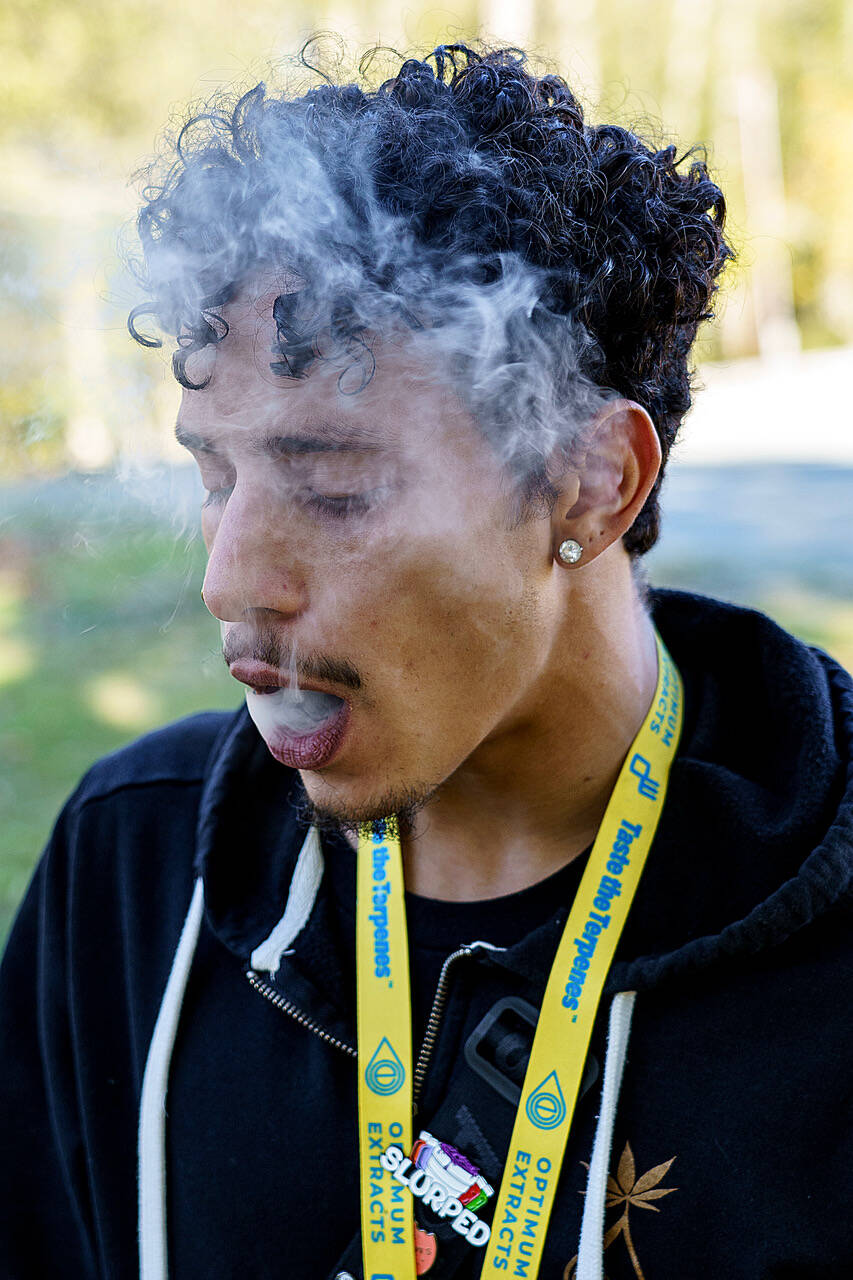Compared to other states where marijuana is legal, people who live in Washington are far more likely to buy marijuana from an authorized store than from a friendly neighborhood dealer.
That’s undoubtedly echoed on Whidbey Island, where the amount of cannabis excise tax collected continues to increase. Those in the Whidbey marijuana scene say that the regulated products and the clean, jewelry-store-like ambiance of the six retail pot shops on the island appeal to a wide range of customers, including many older people who have a lot of disposable income.
As a result, Island County collects more than $100,000 each year in marijuana taxes for general fund departments like the sheriff’s office.
According to an independent study conducted by the University of Waterloo in Ontario, Canada, 77% of survey participants from Washington said they purchased cannabis from a legal source in 2021, compared to 44% for the United States overall and 57% for other states where recreational use of the drug is legal.
“This study is the first one that we are aware of that shows the degree to which Washington consumers choose licensed cannabis retail stores over illegal sources,” Liquor and Cannabis Board Director Rick Garza said. “It shows that the legal market we have is working largely as it should.”
Washington and Colorado were the first states in the country to legalize recreational pot use a decade ago.
It’s a big business on the island. According to 502data.com, the six stores combined made over $94 million in sales in 2021.
Jorge Rincon, general manager for the Green Room in Oak Harbor, said he wasn’t surprised that more people are buying cannabis legally rather than illegally.
He attributes the popularity of legal pot largely to quality control. The state requires cannabis producers to be licensed so customers know they are purchasing a safe product. Rincon said he trusts companies to produce quality cannabis, such as Skagit Organics and Trail Blazin’ in Bellingham – both brands are particularly popular at the Green Room.
Compared to buying pot illegally, “you just never know what kind of product you’re getting,” Rincon said.
He said retail shops can also help customers understand and choose from a wide range of products, which a pot dealer down the block might not be able to offer. Dispensary employees, known as budtenders, are knowledgeable about the products and can provide personal recommendations based on what the customer is looking for.
Whidbey Island Cannabis in Freeland has been open since 2014. General Manager Kathy McCoy said she’s not just selling cannabis but educating people about the use of the drug. One of her goals is to lessen the stigma surrounding pot use.
“I think as the stigma lessens, people are going to feel safer and more at ease at coming to a dispensary,” she said.
McCoy said buying the drug legally versus illegally is simply more convenient and customers know exactly what they’re purchasing.
“Back in the day, you would just buy whatever and hope that it was good weed,” she said.
McCoy estimates about 60% of the shop’s customers are over the age of 50. Many older customers are buying products to help with aches and pains or to sleep better at night.
“There has been an increase, not only in sales, but I’ve also seen a change in who’s actually coming to our store,” McCoy said. “…Every day we have new people that come in that have never been in a dispensary before.”
The one thing that McCoy hears the most from newcomers is they’re always shocked at how clean the store is and how respectful and polite the budtenders are.
Both McCoy and Rincon said that recent ups and downs in the economy did not seem to have an effect on the inflation- and pandemic-proof marijuana industry. McCoy said she did not see an increase in prices because of the large amount of quality products available and that Whidbey Island Cannabis was able to keep prices down.
She attributes the rise of legal marijuana sales to the convenience and availability of buying it legally and the demographic of customers who would probably never buy pot illegally. She would also guess that the illegal market isn’t as profitable as it used to be.
“I think we’re getting a new type of customer, especially on the island,” McCoy said. “It’s not just the young kids looking to get high anymore.”
Tax revenue from cannabis sales are on the rise in Island County. Retailers collect a 37% cannabis excise tax on each retail sale of usable cannabis, cannabis concentrates and cannabis-infused products, according to the Washington State Department of Revenue’s website.
Island County has received Marijuana Excise Tax Revenue since 2018. Numbers have shown a steady increase since 2020. The revenue is distributed to the county’s general fund. Island County is projected to receive about $140,000 in tax revenue in 2022, compared to $114,492 in 2021 and $102,747 in 2020.
At the state level, Washington collected a total of $559.5 million in legal marijuana income and license fees in the 2021 fiscal year, compared to $473.9 million in 2020, according to the Washington State Treasurer’s website.
According to the Liquor and Cannabis Board’s annual report for the 2021 fiscal year, revenues collected from legal cannabis taxes, license fees and penalties were distributed among a variety of government departments including: $272 million to basic health, $191 million to the general fund, $54 million to Washington State Health Care Authority, $10.4 million to the Liquor and Cannabis Board and $15 million to local governments.



